brand
FIRST BANK: TOWARDS REVIVING NIGERIA’S TEXTILE INDUSTRY
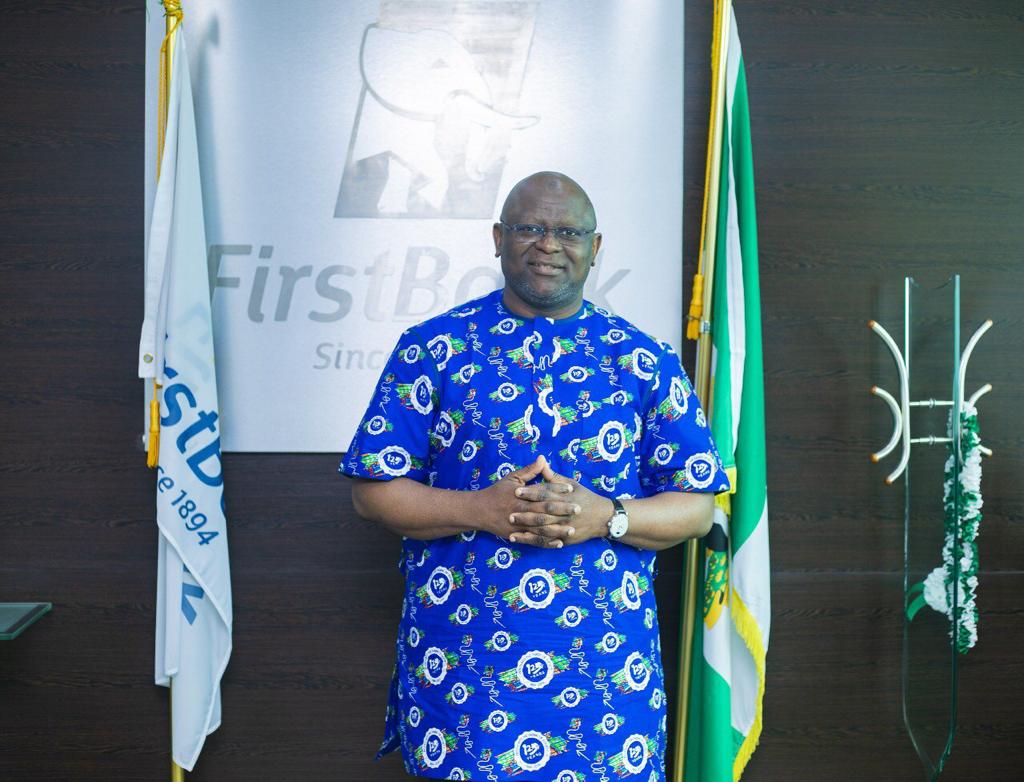
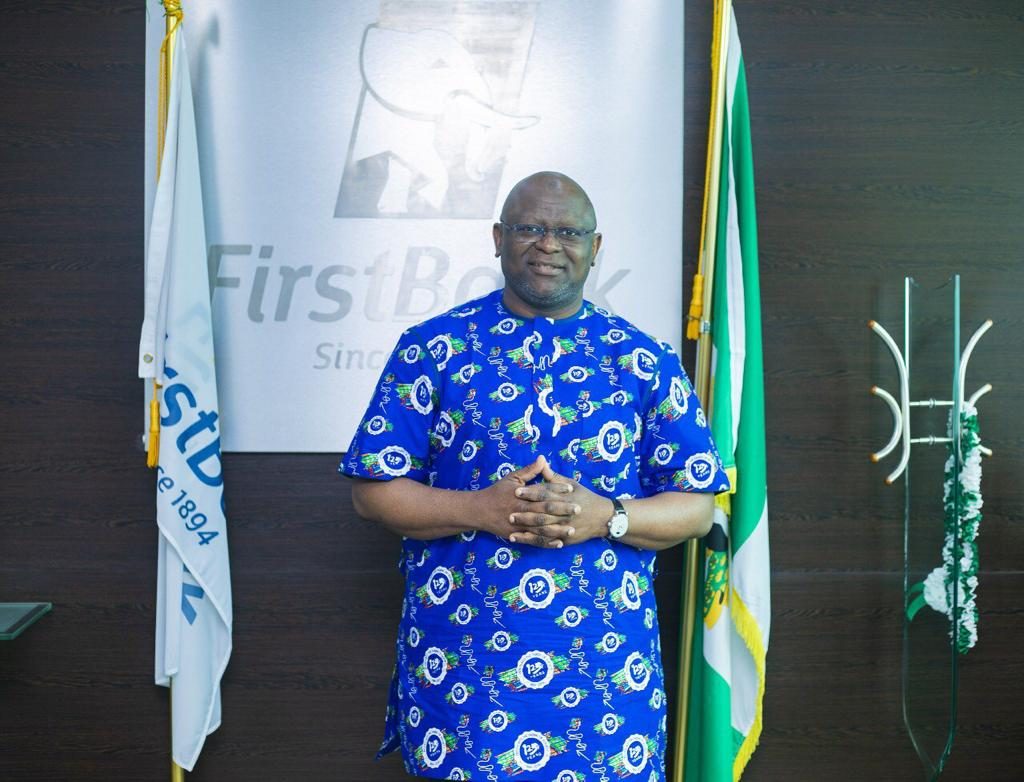
For many years, until the early 1980s, the Nigerian textile industry was the highest employer of labour, after the public sector. Sadly, the industry is in dire straits battling for survival in recent times.
Among the challenges that confronted the sector were policy inconsistency leading to closure of many textile companies occasioned by poor power supply, smuggling, poor access to finance and high operating cost, among others.
It is unarguable that the closure of many textile companies contributed to the rise in the country’s high unemployment rate, rising insecurity and other social vices.
It is against this backdrop that the Central Bank of Nigeria (CBN) Governor, Mr Godwin Emefiele, recently lamented the country’s descent from being a textile giant to a mediocre player in the world economy.
Emefiele said Nigeria used to be home to Africa’s largest textile industry in the 1970s and early 1980s with the employment of over 450,000 people.
“The textile industry at that time was the largest employer of labour in Nigeria after the public sector, contributing over 25 per cent of the workforce in the manufacturing sector.
“The industry was supported by the production of cotton by 600,000 local farmers across 30 of Nigeria’s 36 states.
“This sector supported the clothing needs of the Nigerian populace, as our markets were filled with locally produced textiles from companies such as the United Textiles in Kaduna, Supertex Limited, Afprint, Texlon, Enpee and Aswani Mills, among others.
“In addition, the cotton growing sector has gone dead, thereby depriving thousands of smallholder farmers the chance to earn a living.
Furthermore, a large proportion of our clothing materials today are imported from China and countries in Europe,” Emeifele stated.
It is against this background that First Bank of Nigeria Ltd, in line with its celebratory 125th anniversary , themed, “Woven into the Fabric of Society”, on Oct. 2 commemorated the country’s independence with a locally made textile attire.
Specifically, the bank set aside Oct. 2 to have all staff wear a locally made textile attire adorned in its 125 anniversary logo and over 18,000 staff across the bank and FBN Holdings participated.
The bank in a statement attributed the initiative to moves to celebrate the country’s 59th Independence anniversary and at the same time support the textile industry.
“The native attire fashion statement by FirstBank and the FBN Holdings Group is rooted in our trust in the diverse opportunities the textile industry provides.
“And indeed its contribution to national growth and development, vis-à-vis the job opportunities, youth and women empowerment, as well as the entrepreneurship driven influence its creates cannot be overemphasised.
“The bank is indeed honored to have been woven into the Fabric of Society in the last 125 years and is committed to keep promoting activities and opportunities that contribute to the growth of the textile industry.” it added.
Apart from the above intitative, FirstBank also provide access to market and provide opportunities for entrepreneurs in the Small Medium Scale Enterprise (SMEs) of the fashion industry with an initiative tagged Fashion Souk.
The bank partners with Eventful Nigeria Ltd with Fashion Souk, a platform that creates an opportunity for players in the fashion industry to exhibit and sell their wares to the thousands of event participants.
The bank also in a bid to ensure sustainability of the industry recently introduced fashion design loan specifically designed to offer financial support to the participants in the textile industry.
The bank’s fashion design loan with a single obligor limit of up to two million naira is targeted at tailors, dressmakers and traders in clothing accessories with no tangible collateral required.
To be eligible for the loan, applicants must have been in line of business for a minimum of three years.
Commenting on the development, Mr Moses Igbrude, Publicity Secretary, Independent Shareholders Association of Nigeria (ISAN), described the initiative as a wonderful concept.
“I hope those in the local textiles value chain will key into it and take advantage of this initiative.
“FirstBank should also ensure that the concept is properly communicated to the larger audience to ensure more patronage of locally made textile,” Igbrude said.
He noted that the Federal Government on its part should encourage institutions that are supporting our local industries by way tax incentives.
Also speaking, Mr Shehu Mikail, National President, Constance Shareholders Association of Nigeria, commended the bank’s support for local fabric and the textile industry.
Mikail said that the initiative would boost the morale of interested bodies who would like to venture into local fabric in promoting our culture to the world.
He said that the bank should focus on the fashion designers who would be ready to promote Nigerian mode of dressing to meet the world class in fashion design.
“This will help in promoting Made in Nigeria fabric and it will also encourage an interested investor to venture into textile industry business and this will tranform our economy,” Mikail stated. (NAN)
brand
Access Holdings Reports 2.5 Trillion Gross Earnings in H1 2025
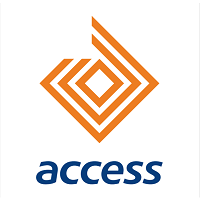
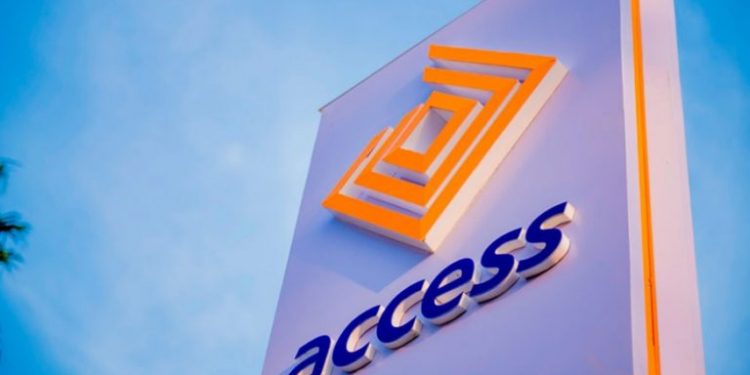
Access Holdings Plc (“the Group” or “the Company”) today announced its half-year audited financial results for the period ended June 30, 2025.The Group’s financial results for the half year ended June 30, 2025, reflect the resilience of our business model, the diversification of our revenue streams, and the steady progress to the execution of our five-year strategic plan. Gross earnings increased by 13.8% year-on-year to 2.5 trillion in H1 2025 from 2.2₦ ₦ trillion in H1 2024, driven by strong growth in interest income which increased by 38.9% year-on-year to 2.0 trillion from 1.5 billion in H1 2024. Net interest income also increased by 91.8% year-on-year to 984.6 billion in H1 2025 from 513.4 billion in H1 2024. Complementing this performance was a growth in net fees and commission income, which increased by 16.1% year-on-year to 237.7billion in H1 2025 from 204.7 billion in H1 2024. Profit before tax (PBT) and profit after tax (PAT) closed at 320.6 billion and 215.9 billion respectively underscoring the strength and resilience of our business model in the markets we operate in. Key balance sheet indicators remain strong with total assets, customer deposits, loans and advances, and shareholders’ equity closing at 42.4 trillion, 22.9 trillion, 13.2 trillion 3.8 trillion respectively. The Banking group demonstrated resilient performance in H1 2025. Interest income grew by 38.7% year-on-year to 2.0 trillion in H1 2025 from 1.5 trillion in H1 2024. Net interest income increased by 85%, from 536.7 billion in H1 2024 to 992.7 billion in H1 2025. Fee and commission income increased by 27% to 294.9 in H1 2025 from 232.5 billion in H1 2024 driven by increased transaction volumes. Profit before tax (PBT) and profit after tax (PAT) closed at 303.0 billion and 199.3 billion respectively. Banking group subsidiaries contributed 65% to the Banking group’s profit before tax (PBT) in H1 2025. This result highlights our journey towards sustainable performance and execution across our key African and international markets. The Group’s non-banking subsidiaries maintained a strong growth momentum. For Access – ARM Pensions, financial performance was robust, with revenue up 29.9% to 21.0 billion and profit before tax up 65.1% to 13.1 billion. The business delivered a₦ ₦
www.accessbankplc.com solid ROAE of 48.1%, a cost-to-income ratio of 35.1%, and a PBT margin of 62.5%, underscoring strong operational efficiency and profitability. Hydrogen Payments recorded a 40.5% growth in top-line revenue compared to H1 2024. Profit before tax (PBT) grew by 273% year-on-year. The total transaction value processed increased by 211%, reaching 41.1 trillion in H1 2025, up from 13.8 trillion in H1 2024. Access Insurance Brokers has sustained strong momentum, recording a 125% year-on-year increase in gross written premium, 146% growth in revenue, and a 161% improvement in profit before tax (PBT). Oxygen X, the Group’s digital lending arm, has sustained strong momentum since launch in Q3 2024, delivering 5.4 billion in revenue and 2.2 billion in profit before tax in H1 2025. Access Holdings’ businesses are well-positioned to deepen market penetration, expand product offerings, and leverage cross-sell opportunities across the Group to drive continued growth and profitability. The group’s focus remains on driving prudent growth and continued execution of its strategic priorities, scaling its digital and transaction-led income streams, increasing revenue diversification, embedding efficiency, innovation, and disciplined portfolio management across all areas of the business. It will also continue to uphold the highest standards of risk and governance discipline to ensure sustainable profitability.Access Holdings remains confident that it will continue to deliver sustainable value and returns to its shareholders. Its long-term objective is to build a stronger, more agile Group that consistently delivers superior returns, fosters innovation-driven growth, and optimises portfolio performance to create inclusive value across its markets while reaffirming investor confidence in the strength and future of Access Holdings. The Group appreciates the continued trust and support of its shareholders, customers, and employees. Together, the Group is building a stronger future.
brand
JIM OVIA: FOUNDER/CHAIRMAN ZENITH BANK, REAFFIRMS STRONG COMMITMENT TO SHAREHOLDER VALUE AT THE NGX CLOSING GONG CEREMONY

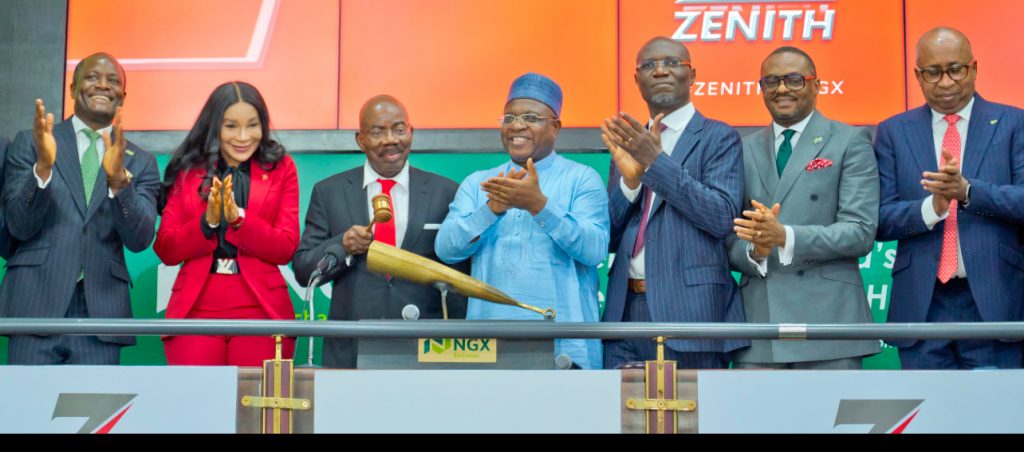
L-R:GMD/CEO, Nigerian Exchange Group, Mr. Temi Popoola; Group Managing Director/CEO, Zenith Bank Plc, Dame Dr. Adaora Umeoji, OON; Chairman and Founder, Zenith Bank Plc, Jim Ovia, CFR; Group Chairman, Nigerian Exchange Group, Alhaji (Dr.) Umaru Kwairanga; Director General, Securities and Exchange Commission(SEC), Dr. Emomotimi Agama; CEO, Nigerian Exchange (NGX), Mr. Jude Chiemeka; and CEO, Central Securities Clearing System Plc, Mr. Haruna Jalo-Waziri at the Closing Gong Ceremony of the Nigerian Exchange Limited, yesterday.
Zenith Bank Plc’s Founder and Chairman, Dr. Jim Ovia, CFR, accompanied by the bank’s Group Managing Director/CEO, Dame Dr. Adaora Umeoji, OON, on Tuesday, October 14, 2025, carried out the prestigious closing gong ceremony at the Nigerian Exchange (NGX), marking a significant milestone in the bank’s continued partnership with the capital market and the official closing of the trading day. The ceremony highlights Zenith Bank’s strong relationship with the NGX and its commitment to transparency, accountability, and bolstering investor confidence. While speaking at the Nigerian Exchange, Dr. Umeoji expressed her delight in participating in the closing gong ceremony, acknowledging the NGX’s visionary leadership and innovative initiatives. “We are delighted to be here today to perform the closing gong ceremony – a symbol of shared progress and enduring partnership,” Dr. Umeoji said. “The NGX’s leadership has been very creative and innovative, and their electronic trading platform – X-stream played a pivotal role in the success of our recapitalization exercise, which achieved a 160% subscription. The bank’s stock price has doubled since the recapitalization exercise, from N36.50 per share to N68. Zenith Bank has also reported impressive financial results for the Half Year (H1) of 2025, becoming the most profitable bank in Nigeria and paying the highest dividend in the industry for the half year.””We are committed to creating value for our stakeholders and will continue to partner with the NGX to boost the Nigerian economy,” Dr. Umeoji added. “Our expansion strategy is focused on following our customers’ businesses and ensuring that we go to countries and economies where we can scale and provide more returns for our shareholders.”She stressed that the bank plans to make good on its promise of being investors’ delight by paying quantum dividends to its shareholders by year end. According to her “For us in Zenith, we are looking forward to paying more based on the confidence the market reposed on us. We are working assiduously to ensure that we do not disappoint the Market. We are going to continue to be the investors’ delight, and we assure the market that we would continue to pay enhanced dividends come end of the year.”Also commenting, the Director General of the Securities and Exchange Commission (SEC), Dr. Emomotimi Agama emphasised the role of the NGX in creating value in the Nigerian economic space. He said, “I want to thank you all for making the market what it is. Without you, the market wouldn’t have seen the leap that it has achieved in the last one-and-half year. I spoke earlier that at my assumption of office, market capitalization stood at N55 trillion, today it is hovering around 89 trillion and 93 trillion. That was not done by a spirit, it was done by you. Your ability, tenacity, courage, vision and transparency have moved the market where it is. Our vision is that by next year, we will have the market at 200trn.”
The Doyen of the NGX, Alhaji Rasheed Yusuf while giving his remarks, lauded the Founder & Chairman, Zenith Bank Plc, Jim Ovia, CFR for his vision and leadership. He ended by referring to him as the “Doyen of the Commercial banking sector”.Zenith Bank remains committed to creating long-term value for its stakeholders while driving economic development in Nigeria. As the bank continues on its growth trajectory, it has its sights set on global expansion. The bank intends to strategically leverage the capital raised from the Market to enhance its scalability and deliver enhanced services to its valued customers.The Bank’s track record of excellent performance has continued to earn the brand numerous awards, including being recognised as the Number One Bank in Nigeria by Tier-1 Capital for the sixteenth consecutive year in the 2025 Top 1000 World Banks Ranking, published by The Banker and “Nigeria’s Best Bank” at the Euromoney Awards for Excellence 2025. The Bank was also awarded Bank of the Year (Nigeria) in The Banker’s Bank of the Year Awards for 2020, 2022 and 2024; Best Bank in Nigeria from 2020 to 2022, 2024 and 2025, in the Global Finance World’s Best Banks Awards; Best Bank for Digital Solutions in Nigeria in the Euromoney Awards 2023; and was listed in the World Finance Top 100 Global Companies in 2023.Further recognitions include Best Commercial Bank, Nigeria for five consecutive years from 2021 to 2025 in the World Finance Banking Awards and Most Sustainable Bank, Nigeria in the International Banker 2023 and 2024 Banking Awards. Additionally, Zenith Bank has been acknowledged as the Best Corporate Governance Bank, Nigeria, in the World Finance Corporate Governance Awards for four consecutive years from 2022 to 2025 and ‘Best in Corporate Governance’ Financial Services’ Africa for four consecutive years from 2020 to 2023 by the Ethical Boardroom.The Bank’s commitment to excellence saw it being named the Most Valuable Banking Brand in Nigeria in The Banker’s Top 500 Banking Brands for 2020 and 2021, Bank of the Year 2023 to 2025 at the BusinessDay Banks and Other Financial Institutions (BAFI) Awards, and Retail Bank of the Year for three consecutive years from 2020 to 2022 and 2024 to 2025 at the BAFI Awards. The Bank also received the accolades of Best Commercial Bank, Nigeria and Best Innovation in Retail Banking, Nigeria, in the International Banker 2022 Banking Awards.Zenith Bank was also named Most Responsible Organisation in Africa, Best Company in Transparency and Reporting and Best Company in Gender Equality and Women Empowerment at the SERAS CSR Awards Africa 2024; Bank of the Year 2024. by New Telegraph Newspaper; and Best in MSME Trade Finance, 2023 by Nairametrics. The Bank’s Hybrid Offer was also adjudged ‘Rights Issue/ Public Offer of the Year at the Nairametrics Capital Market Choice Awards 2025.
brand
ZENITH BANK SIGNALS STRONG FULL-YEAR OUTLOOK WITH N51.3 BILLION INTERIM DIVIDEND PAYOUT
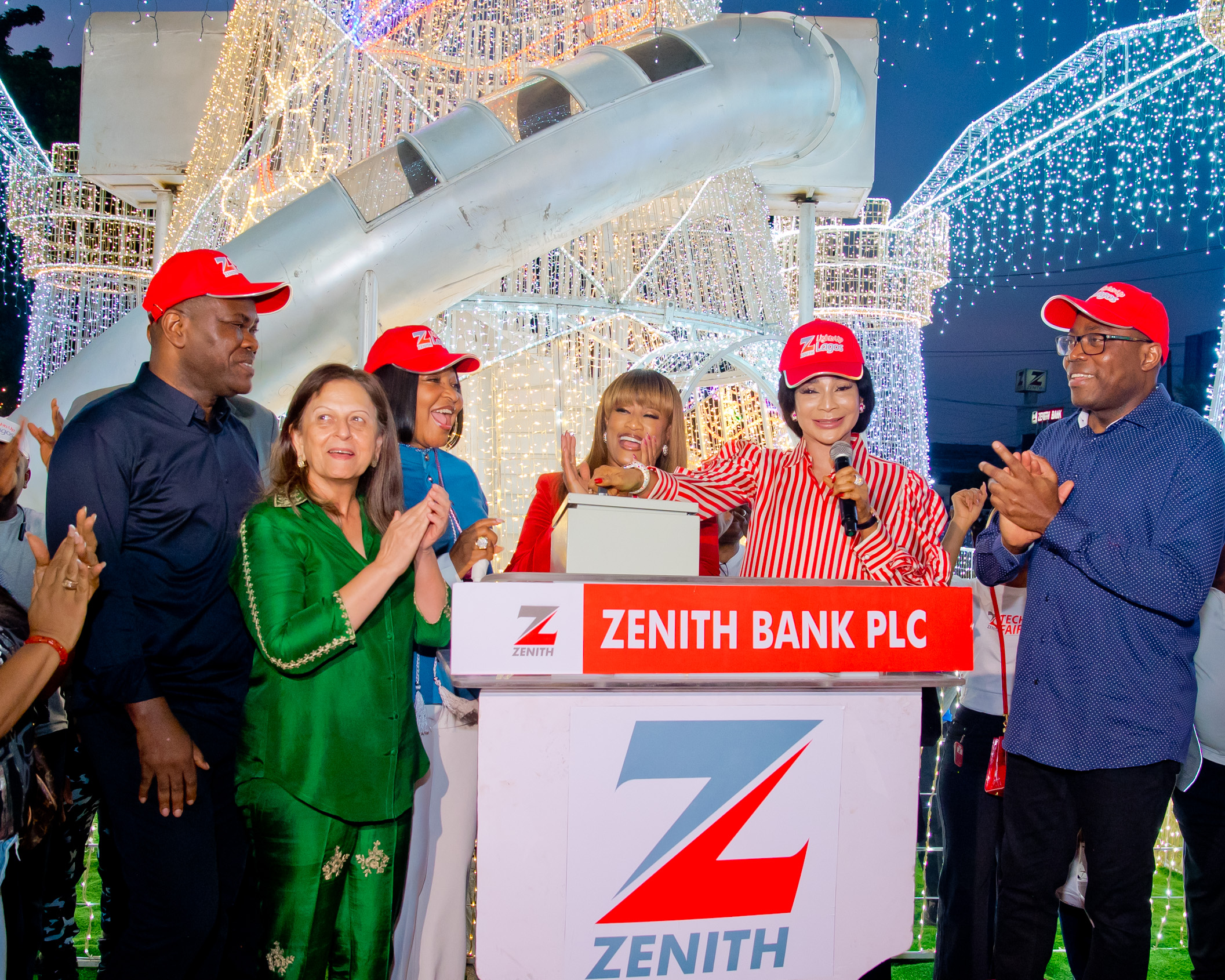

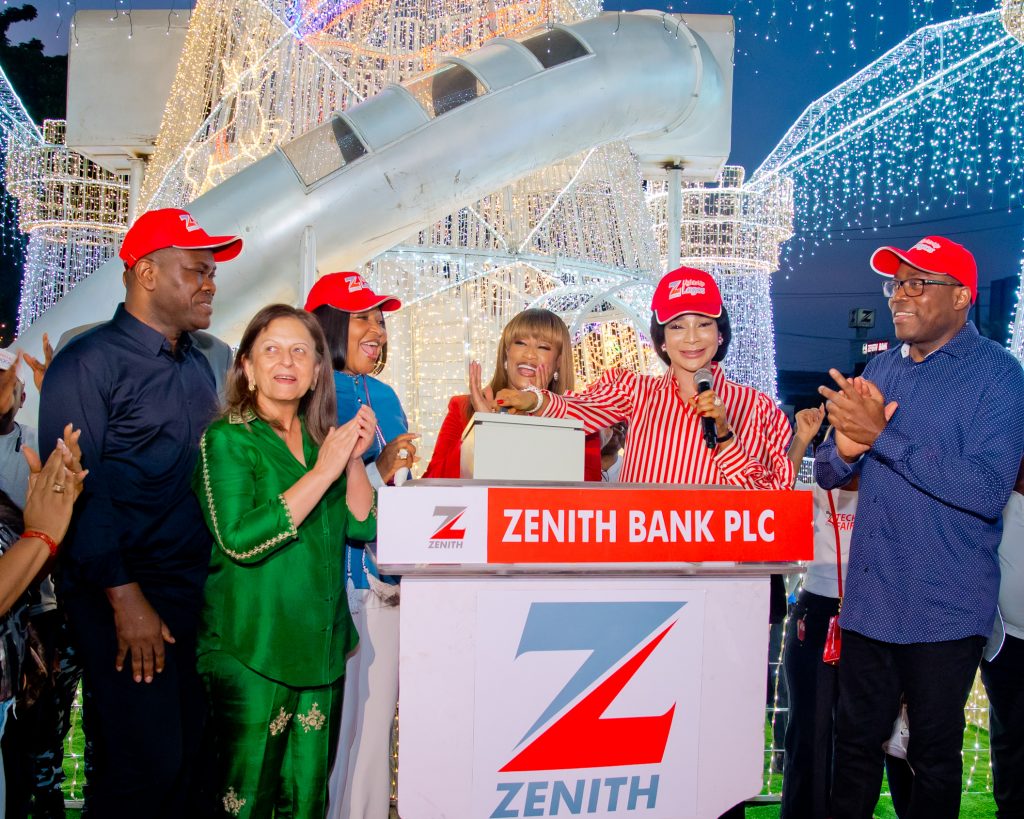
Zenith Bank Plc, on Friday, October 10, 2025, made good on its promise as it paid a total interim dividend of N51.3 billion to its shareholders for the Half Year (H1) 2025, at N1.25 per share. This significant payout represents over 60% increase from the N31.4 billion paid in H1 2024, demonstrating the bank’s commitment and enhanced capacity to continually generate value for its shareholders amidst a challenging macroeconomic environment.The dividend payment comes on the heels of the bank’s audited financial results for the half-year ended June 30, 2025, released to the Nigerian Exchange (NGX) in September 2025, which showcased a robust financial position and growth trajectory.Commenting on the dividend payout, the Group Managing Director/CEO, Dame Dr. Adaora Umeoji, OON, said, “We are pleased to have paid this significant interim dividend to our valued shareholders. Our half-year results underscore our resilience and commitment to our stakeholders. Based on the momentum achieved in H1, we are confident in our full-year outlook and expect to exceed shareholders’ expectations by year end.”The substantial dividend payout reflects exceptional underlying performance as the Bank recorded a robust 20% year-on-year increase in gross earnings, rising from N2.1 trillion to N2.5 trillion in H1 2025. Interest income drove this performance with an impressive 60% growth, climbing from N1.1 trillion to N1.8 trillion. The Bank achieved this impressive increase in interest income through strategic repricing of risk assets and effective treasury management.The Bank’s total assets also expanded to N31 trillion in June 2025, representing steady growth from N30 trillion in December 2024, underpinned by a robust and well-structured balance sheet. Customer confidence remained strong, with deposits growing by 7% from N22 trillion to N23 trillion in June 2025.Zenith Bank’s shareholders can be assured of the bank’s continued focus on delivering exceptional value and growth, driven by its strong financial fundamentals and strategic initiatives.The Bank’s track record of excellent performance has continued to earn the brand numerous awards, including being recognised as the Number One Bank in Nigeria by Tier-1 Capital for the sixteenth consecutive year in the 2025 Top 1000 World Banks Ranking, published by The Banker and “Nigeria’s Best Bank” at the Euromoney Awards for Excellence 2025. The Bank was also awarded Bank of the Year (Nigeria) in The Banker’s Bank of the Year Awards for 2020, 2022 and 2024; Best Bank in Nigeria from 2020 to 2022, 2024 and 2025, in the Global Finance World’s Best Banks Awards; Best Bank for Digital Solutions in Nigeria in the Euromoney Awards 2023; and was listed in the World Finance Top 100 Global Companies in 2023.
Further recognitions include Best Commercial Bank, Nigeria for five consecutive years from 2021 to 2025 in the World Finance Banking Awards and Most Sustainable Bank, Nigeria in the International Banker 2023 and 2024 Banking Awards. Additionally, Zenith Bank has been acknowledged as the Best Corporate Governance Bank, Nigeria, in the World Finance Corporate Governance Awards for four consecutive years from 2022 to 2025 and ‘Best in Corporate Governance’ Financial Services’ Africa for four consecutive years from 2020 to 2023 by the Ethical Boardroom.The Bank’s commitment to excellence saw it being named the Most Valuable Banking Brand in Nigeria in The Banker’s Top 500 Banking Brands for 2020 and 2021, Bank of the Year 2023 to 2025 at the BusinessDay Banks and Other Financial Institutions (BAFI) Awards, and Retail Bank of the Year for three consecutive years from 2020 to 2022 and 2024 to 2025 at the BAFI Awards. The Bank also received the accolades of Best Commercial Bank, Nigeria and Best Innovation in Retail Banking, Nigeria, in the International Banker 2022 Banking Awards.Zenith Bank was also named Most Responsible Organisation in Africa, Best Company in Transparency and Reporting and Best Company in Gender Equality and Women Empowerment at the SERAS CSR Awards Africa 2024; Bank of the Year 2024 by ThisDay Newspaper; Bank of the Year 2024 by New Telegraph Newspaper; and Best in MSME Trade Finance, 2023 by Nairametrics. The Bank’s Hybrid Offer was also adjudged ‘Rights Issue/ Public Offer of the Year’ at the Nairametrics Capital Market Choice Awards 2025
-

 news5 years ago
news5 years agoUPDATE: #ENDSARS: CCTV footage of Lekki shootings intact – Says Sanwo – Olu
-

 lifestyle5 years ago
lifestyle5 years agoFormer Miss World: Mixed reactions trail Agbani Darego’s looks
-

 health5 years ago
health5 years agoChairman Agege LG, Ganiyu Egunjobi Receives Covid-19 Vaccines
-

 lifestyle4 years ago
lifestyle4 years agoObateru: Celebrating a Quintessential PR Man at 60
-

 health5 years ago
health5 years agoUPDATE : Nigeria Records 790 new cases of COVID-19
-

 health5 years ago
health5 years agoBREAKING: Nigeria confirms 663 new cases of COVID-19
-

 entertainment9 months ago
entertainment9 months agoAshny Set for Valentine Special and new Album ‘ Femme Fatale’
-

 news5 months ago
news5 months agoBREAKING: Tinubu swears in new NNPCL Board


